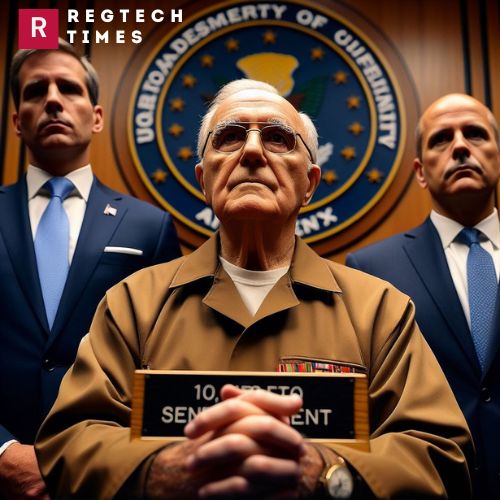Victor Manuel Rocha, a former U.S. Department of State employee, recently made headlines for his shocking admission: he had secretly acted as an agent for the government of the Republic of Cuba. This revelation came after decades of covert activity, during which Rocha held positions of trust within the U.S. government.
Decades of Covert Activity by Victor Manuel Rocha
Victor Manuel Rocha’s clandestine mission began in 1973, and it continued until his arrest. During this time, he supported Cuba’s intelligence-gathering efforts against the United States. What makes this betrayal particularly egregious is that Rocha simultaneously held key roles within the U.S. government. He served on the National Security Council and even held the prestigious position of U.S. Ambassador to Bolivia from 2000 to 2002. All the while, he was secretly working for a foreign power, undermining the very country he had sworn to serve.
Rocha’s covert activities were not limited to his time in high-profile positions. Even after leaving government service, he remained dedicated to advancing Cuban interests, demonstrating a steadfast commitment to his clandestine mission. This prolonged engagement underscores the depth of his betrayal and the lengths to which he was willing to go to serve his foreign handlers.
Guilty Plea and Sentencing
In a dramatic courtroom scene, Victor Manuel Rocha pleaded guilty to charges related to acting as an agent of a foreign government. The federal judge wasted no time in imposing the maximum penalty: 15 years in prison. Rocha’s decades-long deception had finally caught up with him. His willingness to cooperate, as stipulated in his plea agreement, did little to mitigate the gravity of his actions. The sentence serves as a stern warning to others who might contemplate similar treachery within U.S. borders.
Rocha’s guilty plea and subsequent sentencing mark the culmination of years of investigative efforts by law enforcement agencies. The meticulous work of the FBI and other agencies involved in uncovering Rocha’s covert activities highlights the dedication of those tasked with protecting national security. Their tireless efforts serve as a testament to the unwavering commitment to upholding the rule of law and safeguarding the interests of the United States.
Cooperation and Consequences
As part of his plea deal, Rocha must now cooperate with the United States. This cooperation includes assisting with any damage assessment related to his work on behalf of the Republic of Cuba. But that’s not all. Rocha must also forfeit all future retirement benefits owed to him by the United States based on his former State Department employment. Additionally, any profits he might receive from publications related to his criminal conduct or U.S. Government service will be assigned to the United States. These measures underscore the severity of his actions and the need to hold him accountable.
National Security Implications
Beyond Victor Manuel Rocha’s personal fate lies a broader concern: national security. His case highlights the persistent threat posed by hostile intelligence services. The fact that Rocha operated undetected for four decades underscores the challenges faced by law enforcement agencies. The FBI, in particular, played a crucial role in exposing his covert activities. As Executive Assistant Director Larissa L. Knapp of the FBI’s National Security Branch aptly put it, Victor Manuel Rocha’s betrayal serves as a notice to adversaries: the FBI will relentlessly pursue those who compromise U.S. interests.
Conclusion
The case of Victor Manuel Rocha serves as a sobering reminder of the insidious threat posed by espionage within the highest echelons of government. Rocha’s decades-long deception, while shocking, underscores the importance of vigilance and diligence in safeguarding national security. His sentencing sends a clear message: the United States will not tolerate treachery or subversion from within. Let his downfall stand as a warning to others who may contemplate similar acts of betrayal.



